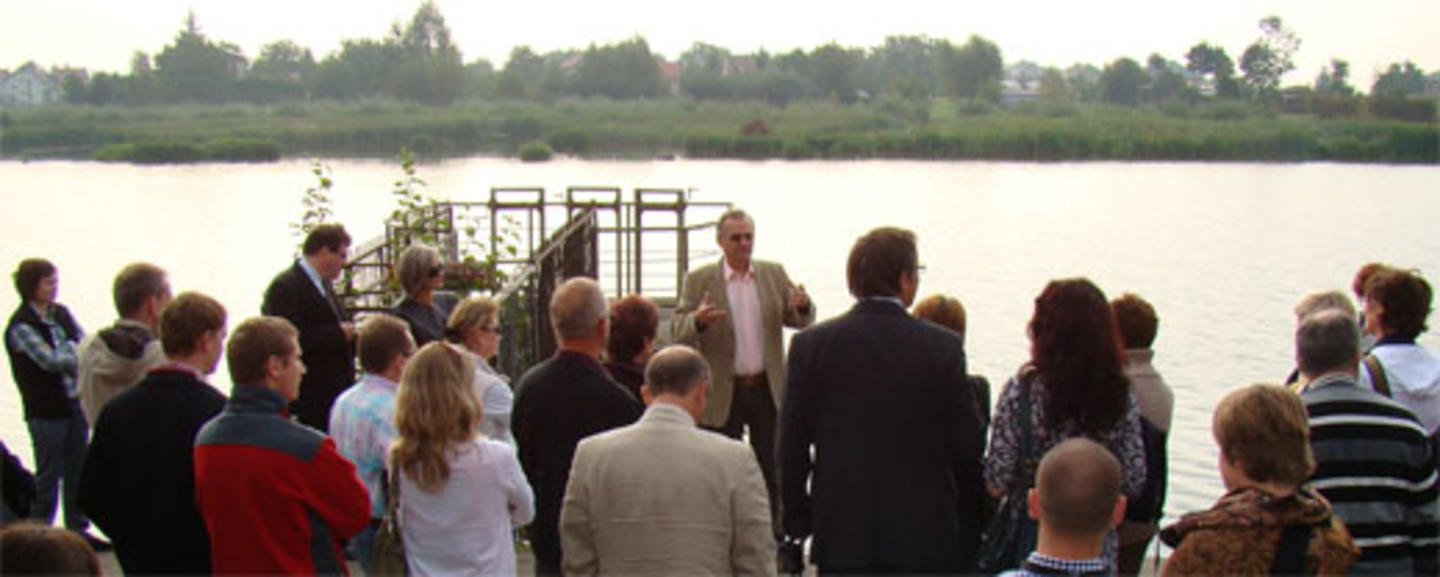The Wislok river runs through the Podkarpacie province of south-east Poland, and the river basin area is home to a total of 390 000 inhabitants. Pollution of the river water remains a serious problem: illegal waste dumping sites are regularly found, and illegal sewage and other forms of toxic waste are being dumped into the river. This is a serious threat to public health in the area, as the Wislok River is the sole source of drinking water for the 180 000 inhabitants of Rzeszów, the provincial capital.
A joint responsibility
There is a strong need of making municipal authorities, leaders and citizens realise that they are responsible for their own actions, and that their actions have an adverse impact on the environment and drinking water.
To this end, the EEA Grants support a major environmental education project put forward by the the Wislok Communal Union, which brings together 18 municipalities and several organisations in the area. The project is carried out in partnership and cooperation with the Confederation of Norwegian Enterprise (NHO) Trøndelag and the Norwegian Association of Local and Regional Authorities (KS) the counties of North and South Trøndelag, as well as the Norwegian municipalities of Grong, Namdalseid and Overhalla.
Exchanging experiences in environmental protection
Several educational initiatives, in which 19 000 people will participate, are planned in order to raise public consciousness about environmental protection and hazardous waste disposal. Among these, 150 outdoor "My Wislok" workshops for children and young people are planned, as well as 5 inter-municipal sustainable development festivals.
30 representatives of local authorities and NGOs will attend a study visit to Norway to learn about the experiences of the Norwegian partner municipalities and organisations in tackling similar challenges and river protection. In this way, the Polish municipalities in the Wislok river basin area will strengthen their own competencies in how to efficiently implement Polish and EU legislation in the field of waste management and treatment.
Photo credit: Wislok Communal Union
